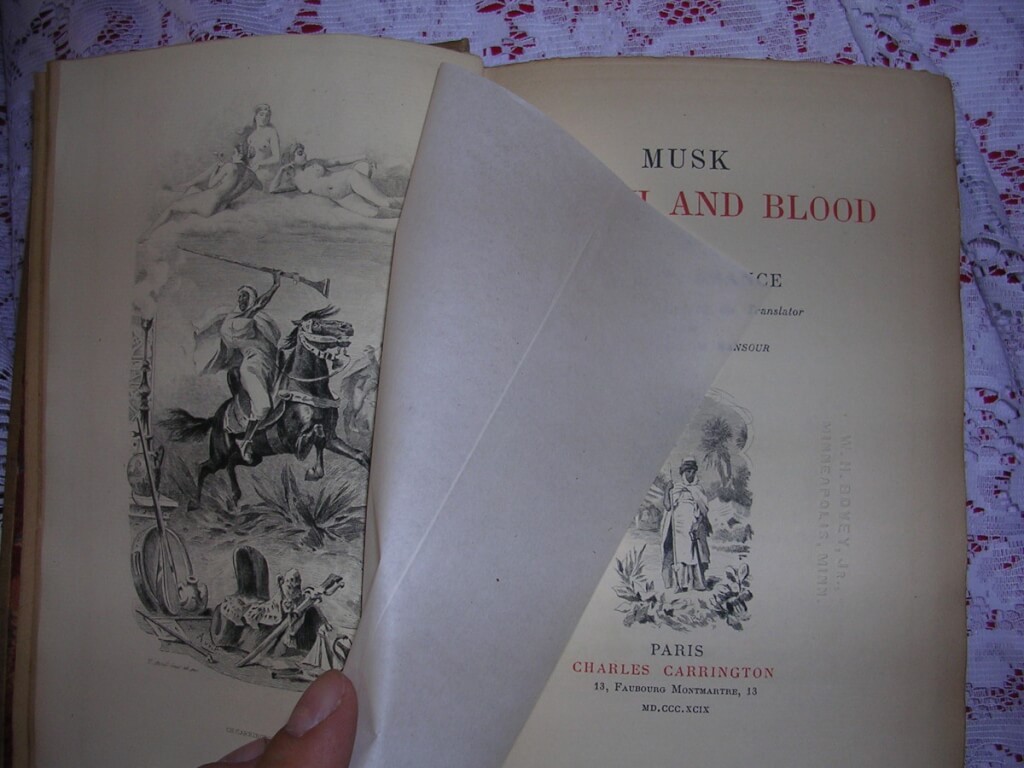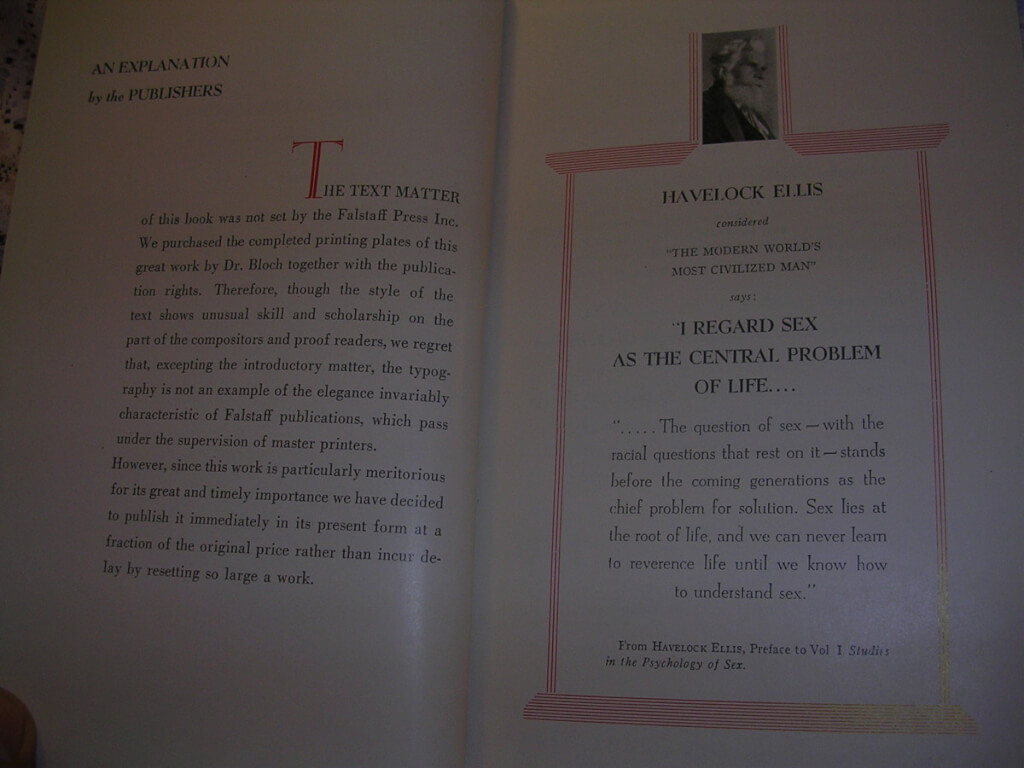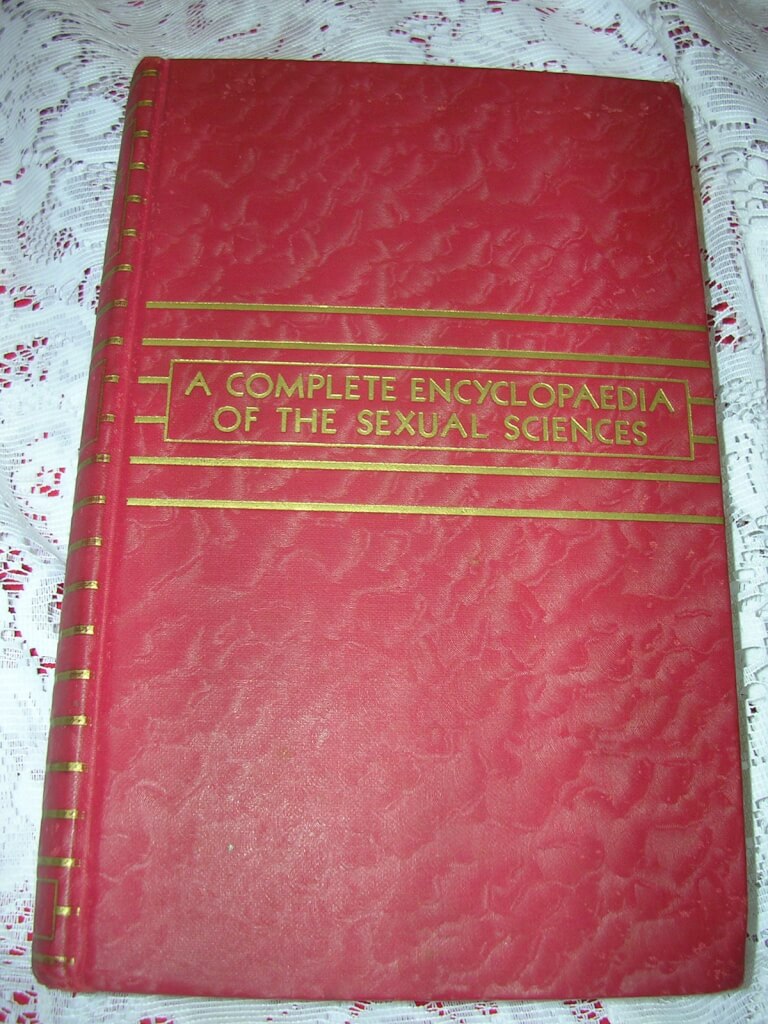The Love Books of Ovid, A Completely Unexpurgated and Newly Translated Edition by Charles D. Young | Together with the Elegie, Translated by Christopher Marlowe | Illustrated by Alexander King “This book, designed by T. Spencer Hutson, was printed at the Alexander Hamilton Press, in March 1930. Illustrations are reproduced by the Knudson process. This edition consists of Two Thousand numbered copies printed on Strathmore MELDON deckle edge laid paper. This copy is No. 361” (Privately Published for Subscribers, Art Studio Books, Inc., 1930, #361/2000)
6.25″x9.5″, iii+302pp, 3/4 black cloth over marbled boards, gilt text and decorations on spine, gilt borders on covers, marbled pastdowns, top edge gilt, other edges deckled, frontispiece and 16 full-page illustrations with descriptive tissue guards, other illustrations and titles in orange within text, near fine copy, slight rubbing at top and bottom of spine.
This is a beautiful edition of 5 of his works, Ars Amatoria (“The Art of Love”), Remedia Amoris (“The Cure for Love”), Amores (“The Loves”), Medicamina Faciei (“dye on the face”), and his Elegies
Publius Ovidius Naso (43 BC – AD 17/18), known as Ovid in the English-speaking world, was a Roman poet who lived during the reign of Augustus. He was a contemporary of the older Virgil and Horace, with whom he is often ranked as one of the three canonical poets of Latin literature. The Imperial scholar Quintilian considered him the last of the Latin love elegists. He enjoyed enormous popularity, but, in one of the mysteries of literary history, was sent by Augustus into exile in a remote province on the Black Sea, where he remained until his death. Ovid himself attributes his exile to carmen et error, “a poem and a mistake”, but his discretion in discussing the causes has resulted in much speculation among scholars. The first major Roman poet to begin his career during the reign of Augustus, Ovid is today best known for the Metamorphoses, a 15-book continuous mythological narrative written in the meter of epic, and for works in elegiac couplets such as Ars Amatoria (“The Art of Love”) and Fasti. His poetry was much imitated during Late Antiquity and the Middle Ages, and greatly influenced Western art and literature. The Metamorphoses remains one of the most important sources of classical mythology.
Alexander King (1899–1965), born Alexander Koenig in Vienna, was a bestselling humorist, memoirist and media personality of the early television era, based in the United States. In his late fifties, after becoming a frequent guest on the a Tonight Show hosted by Jack Paar, King emerged as an incongruous presence in the realm of national celebrity: an aging, irascible raconteur, with elegant mannerisms and trademark bow-tie, who spoke frankly and disarmingly about his bohemian lifestyle, multiple marriages, and years-long struggle with drug addiction. His checkered past led TIME magazine to describe him as “an ex-illustrator, ex-cartoonist, ex-adman, ex-editor, ex-playwright, ex-dope addict. For a quarter-century he was an ex-painter, and by his own bizarre account qualifies as an ex-midwife. He is also an ex-husband to three wives and an ex-Viennese of sufficient age (60) to remember muttonchopped Emperor Franz Joseph. When doctors told him a few years ago that he might soon be an ex-patient (two strokes, serious kidney disease, peptic ulcer, high blood pressure), he sat down to tell gay stories of the life of all these earlier Kings.”






